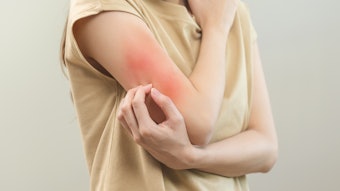
Researchers discovered that the anti-inflammatory therapies used to treat moderate to severe psoriasis can also help to reduce coronary inflammation. The article was published in the online journal JAMA Cardiology, and the study was funded by the National Heart, Lung and Blood Institute (NHLBI). The information gathered from this research could also be helpful for people suffering from chronic inflammatory diseases like lupus and rheumatoid arthritis.
The Study
Researchers analyzed 134 patients who have moderate to severe psoriasis. These patients also did not receive any biologic treatment for at least three months prior to this study. Of the 134 participants, 52 chose not to receive the biologic therapy and were treated with topical or light therapies only. This group was considered the control group in the study.
All of the participants underwent CT scans at the start of the study, and they all were again scanned one year later to assess their coronary inflammation. With psoriasis being a common skin disease impacting 3% to 5% of the U.S. population, this research can help lower the risk of blood clots, heart attacks and strokes caused by the inflammatory response of the disease.
Conclusions
The researchers discovered that the patients who received the biologic therapy showed drastically reduced signs of coronary inflammation. This included the patients who had preexisting coronary artery plaque. However, they did not see any change in the coronary inflammation of the control group.
“After seeing the predicting value of the perivascular FAI for cardiac events, a key lingering question was if we could modify it using anti-inflammatory interventions. As far as we know, our study is the first to assess potential effects of biologic therapy on coronary inflammation using the measure,” said Nehal N. Mehta, M.D., senior author of the study and cardiologist and head of the Lab of Inflammation and Cardiometabolic Diseases at NHLBI.










